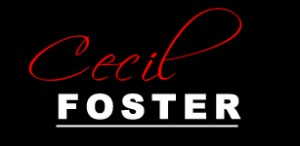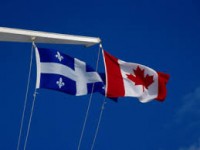It is said values make societies. They are the cement that binds people together. And at the same time these values are produced by society, for it is society that instills values in us. It is the society that teaches us what is valuable about values.
Values are very much in vogue in the societies I inhabit. In Canada there is much controversy over a decision by the province of Quebec to institute a Charter of Values to govern religious ware in the public sector. Workers will be prevented from wearing conspicuous religious symbols such as crosses or crucifixes, yarmulkes, turbans, hijabs or niqabs. Supporters say a secular society should be religion-free, taking to an extreme the liberal call for the separation of state and church, and presumably synagogue, mosque and temple too. In my native land, Barbados, as in much of the Caribbean, there is great discussion on what values should be held dear at a time of a very tight economic squeeze. For example should a value of free education from primary through tertiary levels be a right of citizenship? Under the tutelage of the International Monetary Fund some years ago Jamaica, for example, was told no. And in the United States, where I now work, who can avoid the discussion on what values should be maintained and valued even in a time of war. For example, what would be the cost to all humanity if a valued commitment to never use, or allow the use of, chemical weapons was not upheld even by military force, that is by death by another form?
In all these cases, these discussions are taking place within a wider debate on democracy, liberalism, multiculturalism and transnationalism. So it appears that whether nationally or internationally quite a few people are talking about values. And this debate raises some immediate questions: whose values? Are there universal values of what is good and evil that do not change from state to state? Or are we privileging some subset the values all humanity pools together, but out of which a smaller collection is valued as essential by some societies and not by others? Is it worthwhile for one society to impose its choice subset of values on other countries, even if the state that is at fault appears to be abiding by its own subset of values? Indeed are all values equally expressions of human dignity? Within a state is it valuable and humanly acceptable that some members deem themselves to be the discerners of what is valuable and then to impose those chosen values on those who disagree? This time let’s look for some answers in the clash of values within the clash of charters in Canada—a clash of the particular and the universal.
Democracy is often presented mechanically as majority rule and also, seemingly contradictorily, as idealistically an exercise in equality and inclusion as rule by the people, presumably including those of the people different from the majority. Thus if democracy is majority rule then it stands to reason that a majority of voters can determine a democratic discussion on values in any society. Therefore a majority that calls itself French-Quebecois would argue that its members collectively have the mandate or power to impose a charter of values. But with this argument there is often the criticism that such actions lead to democracy as the tyranny of the majority. Minorities—either as the individual everyone of us is in any society or when we consciously form small factions in the larger whole—would always be outvoted and would forever find themselves marginalized in society. Indeed, this is the same argument the sovereignists in Quebec invoke as a reason for Quebec’s independence—in a state supposedly made up of French-speaking Quebec as one faction and the Rest of Canada as another subset, the bigger and more populous Rest of Canada would hold Quebec in a democratic reign of tyranny.
But we live in liberal democracies, the opposite of democratic tyranny. This is supposedly the hallmark of what some call Western Civilization, one that is marked by globalization and the attendant diversity of humanity together living out in a shrinking globe their cultural differences. Here then the individual’s rights to live out his or her humanity different from the majority are cherished and protected.
For me, from a democratic perspective, this speaks to what makes discussions on accommodation of minorities in modern societies so interesting. In the Canadian case, this discussion is based on pitting a Charter of Rights and Freedoms based on individualism and liberal rights, and which is entrenched in a federal constitution, against a Charter of Values predicated on a presumed majority’s collective rights in a specific part of the federation. For in the end there can be no doubt that this debate highlights a struggle for recognition: of liberal individualism and the right to be different from the majority. Yet as minorities they wish to share a common fraternity in the state even if they choose to live in ways that defy the collective desire by a dominant group to force conformity on those considered different from the majority.
In the end this clash is not so much about values per se but rather about power and citizenship: which group has the right and, indeed, power to make its values those that really matter; are all citizens—specifically those practicing different values from a majority—entitled to enjoy equality of citizenship. And, importantly, suppose what they wear is intended by them as nothing more than simply symbols of cultural and religious differences but not as signs of values? Can we separate the two?
These are issues that have always intrigued me. Much of my writing over the years have been about these issues—about how those who are different and representative of the diversity of humanity can fit as citizens in a society that is officially a liberal democracy but which is often perceived to be the homeland of some ethnic group—a group that claims the right to impose its ethnic values on those who are ethnically different. It is what I see as a search for social justice within multiculturalism based on a society having negotiated multiple values and not having imposed on a few those values determined by any privileged group.
Enough for now. I will be returning to this discussion from time to time. And I will be talking about how such discussions fit into my understanding of multiculturalism, transnationalism and the improvisation that is necessary and even essential to the human condition and our search for social justice. What do you think? Let me know. But, first, take a look at the links below, especially the third one on the legality of the proposed charter of values in a society that is officially multicultural and a liberal democracy, written by a friend and former colleague at the Globe and Mail, Sean Fine.
http://www.montrealgazette.com/life/Charter+Values+island+different+story/8910760/story.html
http://news.nationalpost.com/2013/09/14/hundreds-protest-quebec-values-charter-while-jewish-group-withdraws-over-dubious-objectives/
http://www.theglobeandmail.com/news/politics/is-quebecs-secular-charter-constitutional-nine-legal-experts-weigh-in/article14324825/



